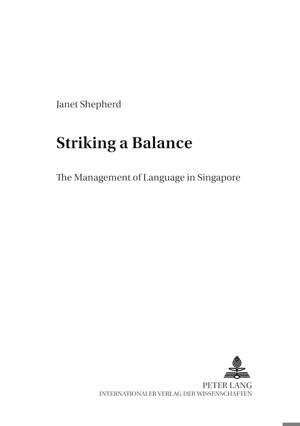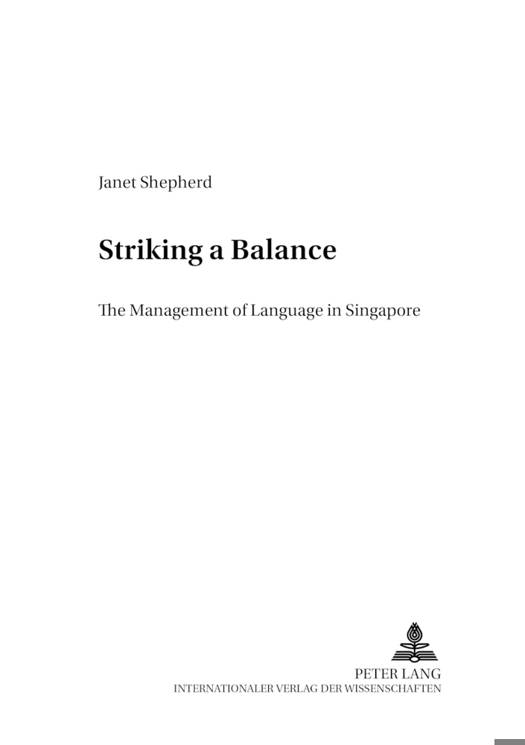
- Afhalen na 1 uur in een winkel met voorraad
- Gratis thuislevering in België vanaf € 30
- Ruim aanbod met 7 miljoen producten
- Afhalen na 1 uur in een winkel met voorraad
- Gratis thuislevering in België vanaf € 30
- Ruim aanbod met 7 miljoen producten
Zoeken
Omschrijving
This study presents an overview of the management of language in Singapore. It focuses on the use of language as a resource and as a means of furthering national cohesion. The relative positions of the two major languages, Chinese and English, are traced from colonial times to this century, with reference to education, literature, and the emergence of distinctive local speech varieties. Major government interventions in the form of the Speak Mandarin Campaign and the Speak Good English Movement are discussed against a background of ongoing changes to the education system. A major theme is the influence of Lee Kuan Yew on language policy. Another is the need to strike a balance between the concerns of the different speech communities, and the significance of this balance for the future.
Specificaties
Betrokkenen
- Auteur(s):
- Uitgeverij:
Inhoud
- Aantal bladzijden:
- 236
- Taal:
- Engels
- Reeks:
- Reeksnummer:
- nr. 12
Eigenschappen
- Productcode (EAN):
- 9783631535561
- Verschijningsdatum:
- 3/02/2005
- Uitvoering:
- Paperback
- Formaat:
- Trade paperback (VS)
- Afmetingen:
- 148 mm x 210 mm
- Gewicht:
- 290 g

Alleen bij Standaard Boekhandel
+ 162 punten op je klantenkaart van Standaard Boekhandel
Beoordelingen
We publiceren alleen reviews die voldoen aan de voorwaarden voor reviews. Bekijk onze voorwaarden voor reviews.











